Editorial
2015 Polls: Guaranteeing Safety Of Journalists
A couple of weeks ago, a reporter with
Channels Television covering a political
rally in Okrika, Rivers State was stabbed while on duty. Few days later, another journalist, attached to the Rivers State Government House was kidnapped in Khana Local Government Area of Rivers State. This is one situation that must never be allowed to continue.
Political events where life and property, especially that of media men cannot be guaranteed may no longer be covered. The trend has reached a level where journalists no longer feel safe to perform their duty as the chroniclers of events in the country. This is highly condemnable.
All over the civilised world, journalists are not attacked in course of their duty even at war times. It is an unwritten practice that, like other social workers, journalists are allowed to do their sacred duty to mankind without any hindrance. The wisdom in this is that all sides in any conflict would want to air their own views for public support.
That is why the recent attacks on journalists, especially, at political events in Rivers State have become unacceptable. As expected, the Nigeria Union of Journalists (NUJ) in Rivers State had said that its members may no longer cover political events where their safety cannot be guaranteed.
The Tide notes that although the job and responsibilities of the journalist are clearly cut out in the Nigerian Constitution, they cannot do much if their safety cannot be assured. The role of the media is so connected to the running of a just and democratic society that they cannot be allowed to step asides. Certainly, not at times like thus, when the participation of every citizen is required .
While we pray for the quick recovery of the Channels Reporter, and thank God for the release of the Rivers State Governor’s Deputy Chief Press Secretary and the point must be made that because Journalists serve all interests there can be no justification for violence against them.
Studies have shown that journalists are among the most endangered work group. Yet, they are about the least recognised and paid in Nigeria. This has not changed even when the media played major role in the attainment of independence and later the return to democracy in Nigeria.
Times like this bring to mind the protracted demand for insurance scheme for journalists, the upward review of their remuneration and the provision of a conducive working environment. But why not much has been done in these areas remain unspeakable . Its effect on the development of the industry is also there for all to see.
We are aware that the media has been infiltrated by charlatans, some of whom the ethical and professional demands of the job may not be clear. Some have also used the poor pay as excuse to compromise on standards and conduct, but none of these can justify attack on any journalist.
The media must not only be professional at all times, they must be seen to be open and committed to all interests. As often stated, the media is the fourth arm of government in any viable democracy. So, the media cannot afford not to serve the interest of all and so enjoy the protection of all.
As Nigeria prepares for the 2015 polls, we expect that all stakeholders, including the political parties, the security agencies and the electoral body will factor-in the safety of journalists at the various elections.
The credibility of the elections can be hampered by the failure of the media to participate and report the inter-play of forces and issues at the elections. Indeed, the presence of the media can also deter some irregularities and position Nigeria as a responsible country in the eye of the international community.
Even as we cannot advise any journalist to endanger his/her life, practitioners must not allow themselves to be intimidated and prevented from doing their jobs. They must act wisely, apply all legitimate means of protecting themselves, but the security agencies owe it a duty to ensure that no journalist suffers any harm in course of rendering service to this country.
Editorial
Fubara’s 2025 Budget Of Inclusive Growth
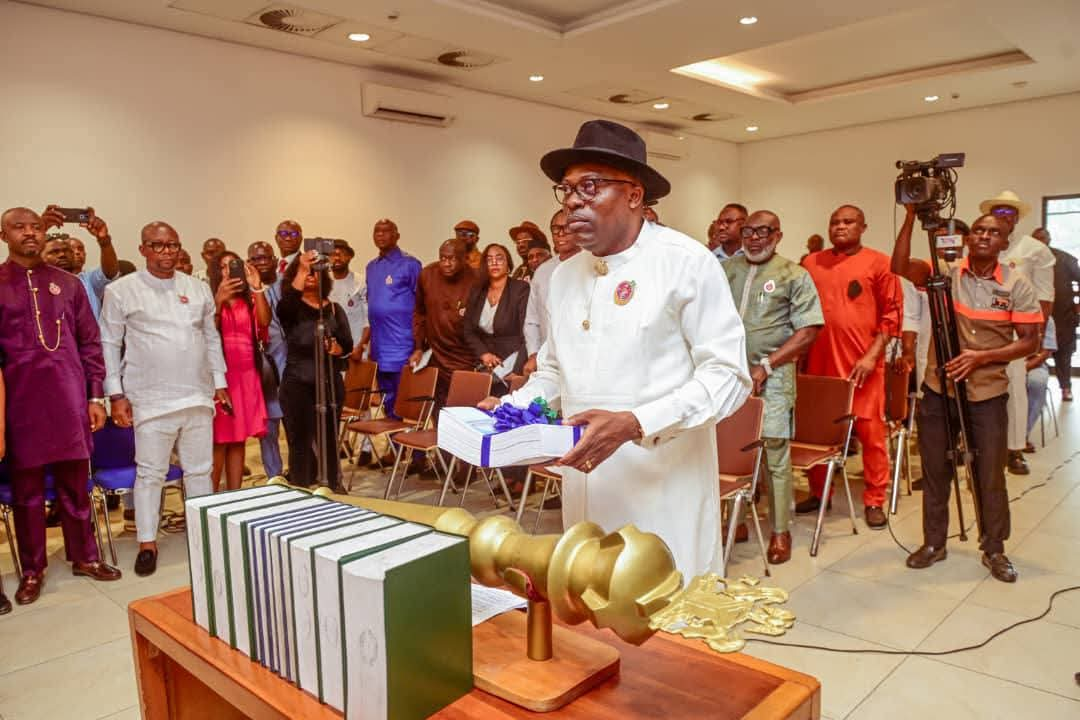
Editorial
Opobo And The Proposed Higher Institution
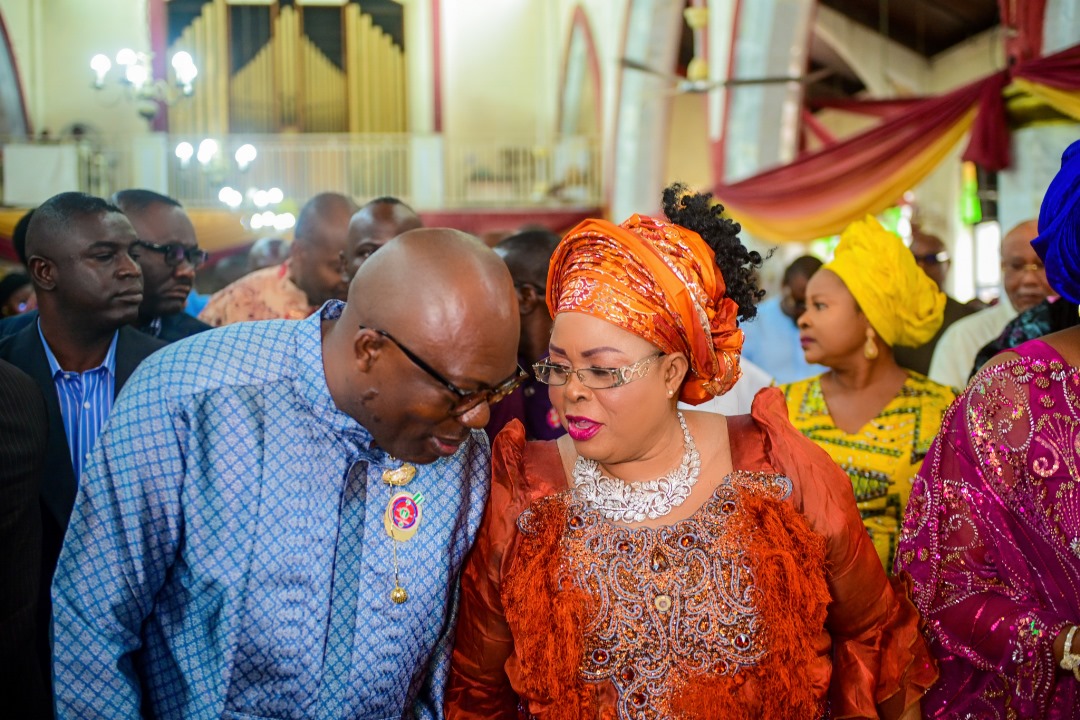
Editorial
A New Dawn For Rivers’ Workers

Workers in the Rivers State civil service have been eulogising Governor Siminalayi Fubara for delivering on his promise to implement a new minimum wage of N85,000, which was reflected in the salaries paid for November. This increase is N15,000 higher than the national minimum wage of N70,000. This represents not only an enhancement in the financial welfare of civil servants but also a recognition of their hard work and dedication to public service. The raise has been met with widespread jubilation among the workforce, who have long advocated for a better wage to cope with rising living costs and economic challenges.
As the news spread, offices filled with laughter and sigh of relief, as employees exchanged stories of how this financial boost would positively impact their families and dependants. The new minimum wage is not just a number; it symbolises the government’s commitment to improving the standards of living for civil servants and fostering a more equitable workforce. Many workers expressed their gratitude for the governor’s timely intervention, highlighting how important it is for public servants to feel valued and adequately renumerated.
Governor Fubara’s decision is expected to reinforce morale within the civil service, fostering greater productivity and dedication among employees who contribute significantly to the state’s development. With the new wage in place, there is a renewed sense of optimism among civil servants, who now feel more empowered to serve the government and the citizens with greater enthusiasm and commitment.
The Governor had declared an increase in salaries for state workers, emphasising that this adjustment is not only a reflection of the government’s commitment to improving the welfare of its employees but also a strategic move fueled by the state’s enhanced Internally Generated Revenue (IGR). He assured workers that the financial backing for this increment is sustainable, stemming from the state’s focused efforts to bolster revenue through various initiatives, including tax reforms and enhanced efficiency in public service delivery.
Furthermore, the governor’s promise of funding the increment solely through increased IGR signifies a commitment to fiscal responsibility and transparency. It reassures the people that the government is proactively managing resources while investing in their future. As the state continues to explore opportunities for revenue enhancement, Fubara’s administration remains focused on ensuring that these initiatives translate into tangible benefits for the workforce, ultimately fostering a more motivated and dedicated public sector.
The decision by Fubara to be the first in Nigeria to implement the new national minimum wage is a commendable step that reflects a proactive approach to governance and an understanding of the pressing needs of the workforce. In an economy where many families struggle to make ends meet, especially in the face of rising living costs, this enterprise will improve the quality of life for workers and also set a precedent for other states to follow.
In recognising the various drives and support provided by Fubara’s government, it is necessary that the workers reciprocate by embodying a spirit of productivity and commitment to the current administration’s goals. They should align their daily operations with the administration’s objectives to enhance effectiveness and foster an environment of collaboration and trust. This reciprocal relationship can lead to innovative solutions and efficient service delivery, ultimately benefiting the state and strengthening public trust in government institutions.
Surprisingly, despite the political challenges the government has been navigating, alongside the myriad of ambitious projects it is embarking on, it has managed to raise funds to implement a minimum wage of N85,000 This achievement reflects a commendable level of resilience and resourcefulness within the government’s fiscal strategies. In a nation often marred by economic volatility and political discord, finding a way to sustain and even elevate the livelihoods of its employees is no small feat.
Workers in the state have truly found themselves in a remarkably advantageous position under this administration, especially when compared to the previous regime. The immediate past government’s blatant refusal to implement the minimum wage of N30,000 left many employees disheartened and struggling to meet their basic needs. What was even more disconcerting was the absence of meaningful negotiations with labour representatives, leaving workers feeling unheard and undervalued. In contrast, the present administration has prioritised dialogue and engagement with labour unions, recognising the importance of fair wage for workers’ contributions to the state’s economy.
With the current government’s commitment to improving wages and working conditions, it is clear that a major shift has taken place. This renewed focus on the welfare of workers empowers them and instils a sense of hope and optimism for the future, as they can now look forward to a more equitable and supportive work environment. Ultimately, the ongoing trajectory suggests a promising era for labour relations in the state, one where workers are valued and their rights upheld.
Siminalayi Fubara has consistently demonstrated his dedication to workers’ welfare since taking office in May last year. Unlike his predecessor, who left many employees feeling overlooked and unsupported, Fubara wasted no time in addressing the longstanding stagnation of promotions that had plagued the workforce for eight years. He took further steps towards financial justice by initiating the long-overdue payment of gratuities that were neglected during the last administration.
Similarly, we urge the governor to take another step forward by reviewing the stipends received by pensioners. The current pension amounts have become woefully inadequate, leaving many of them who dedicated their lives to public service struggling to make ends meet. These dedicated individuals who have contributed to the development of our dear state now find themselves in a precarious financial situation, receiving stipends that are alarmingly low and insufficient to cover basic living expenses. The rising cost of living has rendered their pensions nearly meaningless. Therefore, a comprehensive reevaluation of these stipends is a required measure to ensure that those who have served our state with honour can live their remaining years with dignity and security.
-
Niger Delta4 days ago
RSBOPP Moves To Review Procurement Processes
-
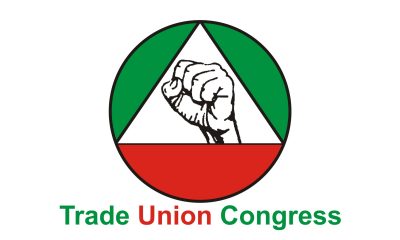
 News4 days ago
News4 days agoTUC Rejects VAT Hike, Urges Pro-people Tax Reforms
-

 Business4 days ago
Business4 days agoCBN Predicts 4.17% GDP Growth In 2025
-
Rivers4 days ago
100 Days: Omuma Council Boss Lists Achievements
-
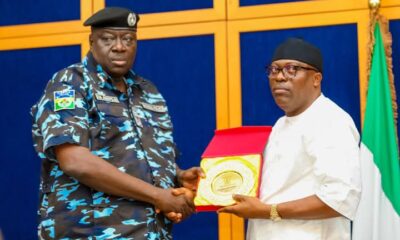
 Featured4 days ago
Featured4 days agoTinubu Pledges Peace, Justice, Development in Ogoniland….Fubara Lauds President on Peace Talks
-

 Featured4 days ago
Featured4 days agoFG, States, Local Govts Share N1.42trn In January
-
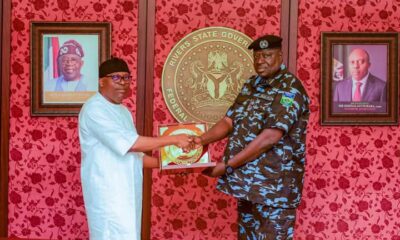
 News4 days ago
News4 days agoDon’t Attend Nocturnal Meetings To Declare War On Rivers, Fubara Tells New CP
-
News4 days ago
AUDA-NEPAD Nigeria To Electrify 1m Rural Communities In 2025

